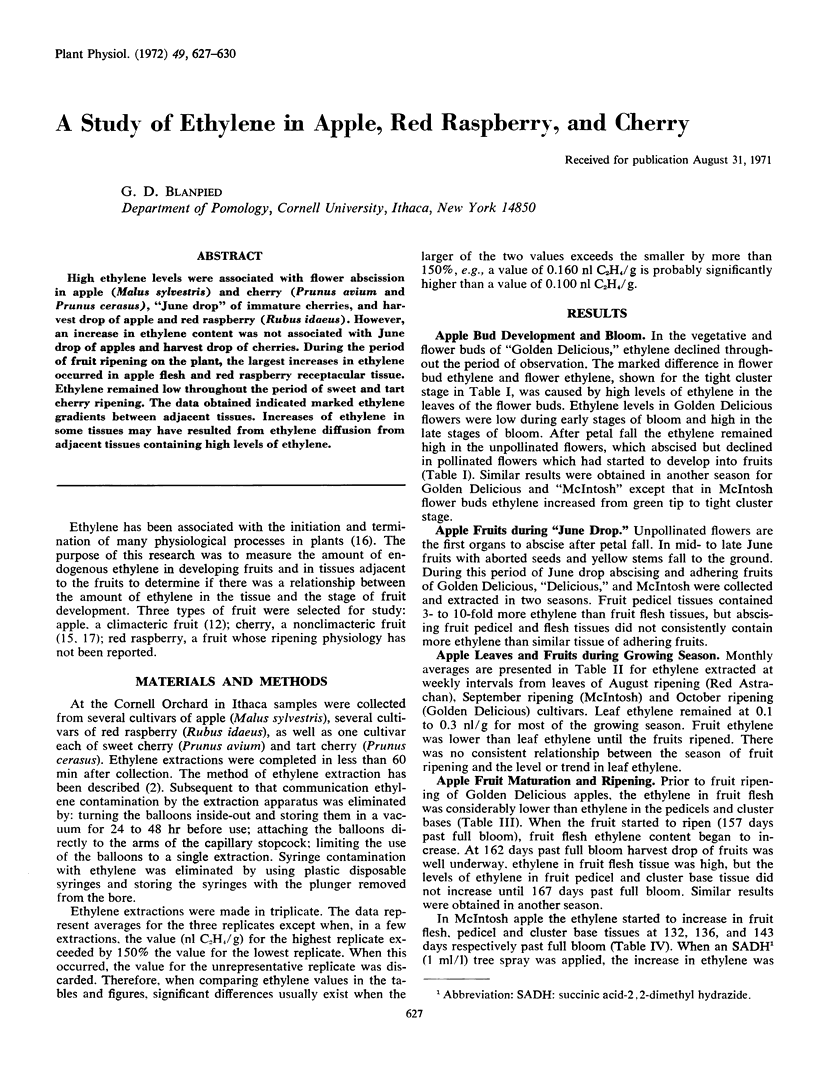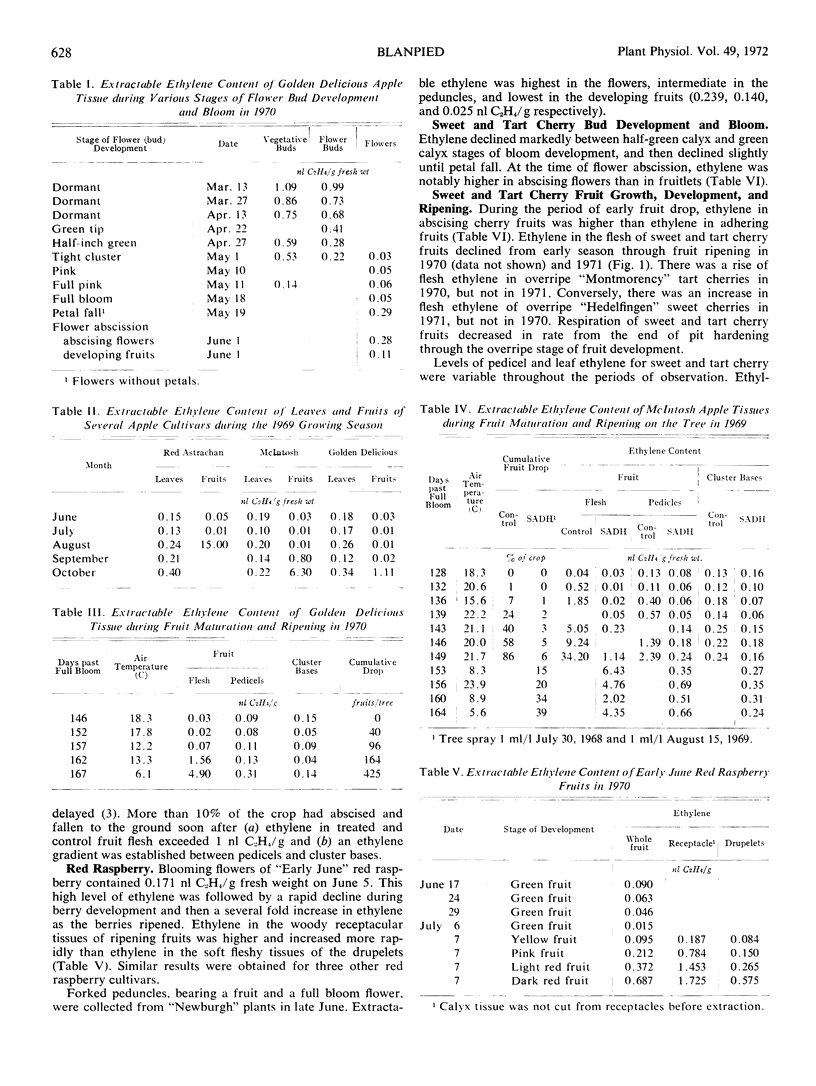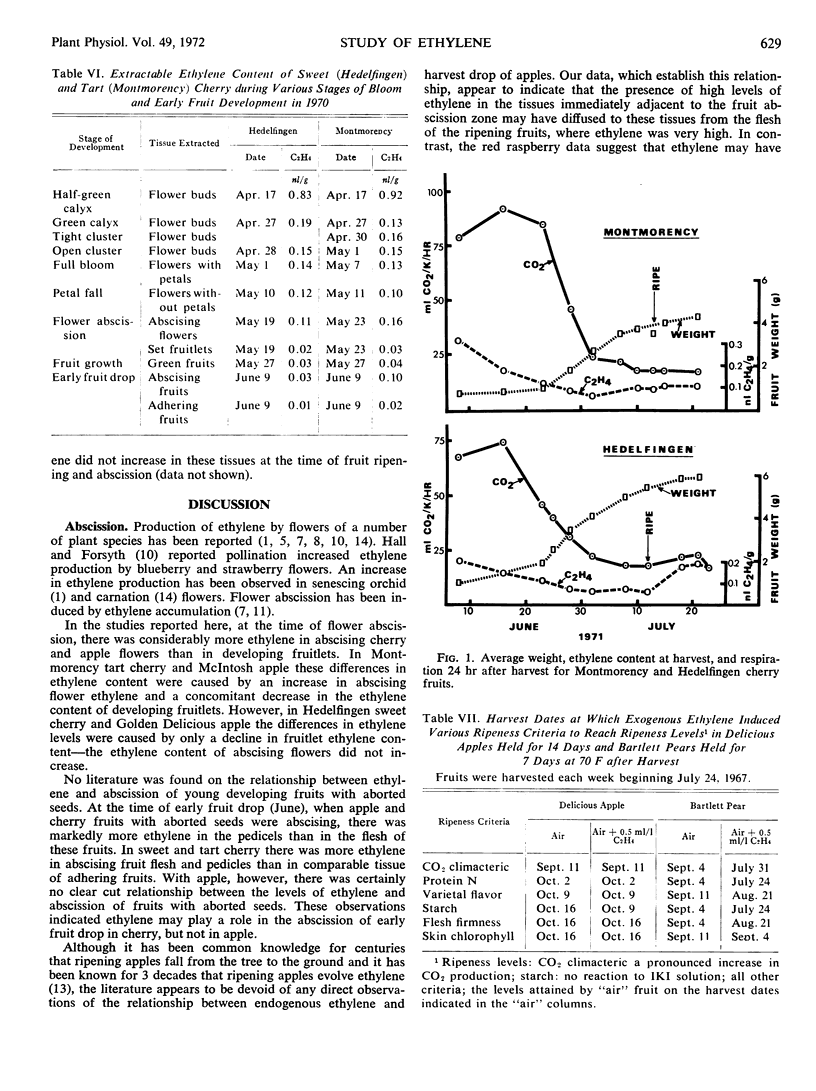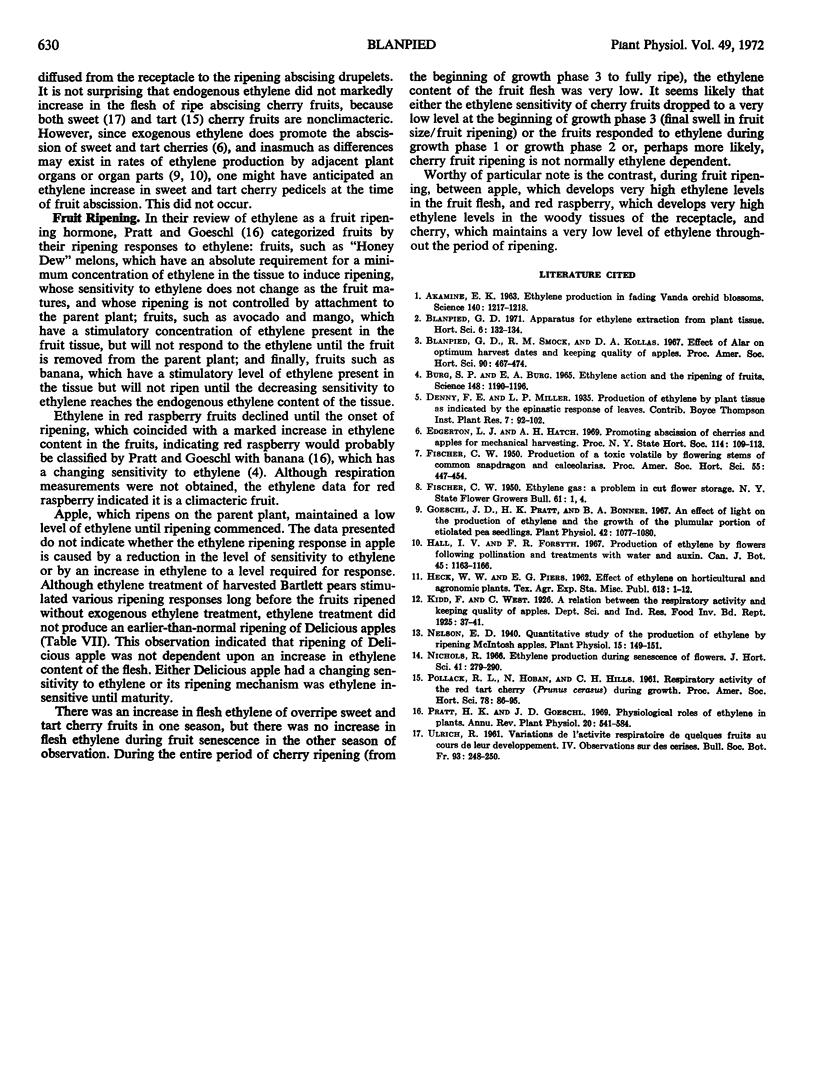Abstract
High ethylene levels were associated with flower abscission in apple (Malus sylvestris) and cherry (Prunus avium and Prunus cerasus), “June drop” of immature cherries, and harvest drop of apple and red raspberry (Rubus idaeus). However, an increase in ethylene content was not associated with June drop of apples and harvest drop of cherries. During the period of fruit ripening on the plant, the largest increases in ethylene occurred in apple flesh and red raspberry receptacular tissue. Ethylene remained low throughout the period of sweet and tart cherry ripening. The data obtained indicated marked ethylene gradients between adjacent tissues. Increases of ethylene in some tissues may have resulted from ethylene diffusion from adjacent tissues containing high levels of ethylene.
Full text
PDF



Selected References
These references are in PubMed. This may not be the complete list of references from this article.
- Akamine E. K. Ethylene Production in Fading Vanda Orchid Blossoms. Science. 1963 Jun 14;140(3572):1217–1218. doi: 10.1126/science.140.3572.1217. [DOI] [PubMed] [Google Scholar]
- BURG S. P., BURG E. A. ETHYLENE ACTION AND THE RIPENING OF FRUITS. Science. 1965 May 28;148(3674):1190–1196. doi: 10.1126/science.148.3674.1190. [DOI] [PubMed] [Google Scholar]
- Goeschl J. D., Pratt H. K., Bonner B. A. An effect of light on the production of ethylene and the growth of the plumular portion of etiolated pea seedlings. Plant Physiol. 1967 Aug;42(8):1077–1080. doi: 10.1104/pp.42.8.1077. [DOI] [PMC free article] [PubMed] [Google Scholar]
- Nelson R. C. QUANTITATIVE STUDY OF THE PRODUCTION OF ETHYLENE BY RIPENING MCINTOSH APPLES. Plant Physiol. 1940 Jan;15(1):149–151. doi: 10.1104/pp.15.1.149. [DOI] [PMC free article] [PubMed] [Google Scholar]



